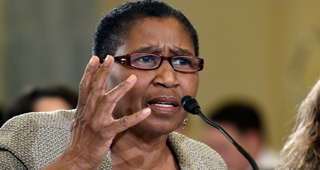Michele Roberts told The Undefeated that she believes there is a “double standard” between how players are perceived when they choose to change teams versus franchises who decide to trade players.
“If you want to be critical of one, be critical of both,” Roberts said. “Those of us who made decisions to move, it’s really astounding to even consider what it feels like to be told in the middle of your life you are going to have to move. But that’s the business we’re in. …
“No one seems to spend a lot of time thinking about what it’s like to make those kinds of moves completely involuntarily. You volunteer to play or not play. But, yeah, if it’s still the case that if you think you’ve got to suck it up, player, then, hell, you’ve got to suck it up, team.”
This offseason, Anthony Davis and Paul George received criticism for requesting trades to the Los Angeles Lakers and Los Angeles Clippers respectively.
The Houston Rockets, however, received very little criticism for trading away Chris Paul.
“No one has said a word about what happens when the team precipitously trades a man, especially a family man, and the consequences that that has on him,” said Roberts. “We spend so much time criticizing a player’s decision to move but no time wondering or thinking is anything contoured about a team’s decision to move a player.
“Now, I don’t think either one of them is evil. If a team has the right to trade you, then that’s the way it works. Similarly, if a player has the right to leave, that’s the way it works too. If the team doesn’t want to trade the player, it doesn’t.”
Roberts believes players are held to a different standard.
“There’s just a perception that owners have rights and players don’t,” Roberts said. “I mean it’s unfortunate that we tend to, on some levels, continue to view players as property as opposed to people. And so, you allow for a certain flexibility as you exercise your property rights that somehow appear to be more compelling than a player’s individual freedom.
“And I can’t figure it out except that there is still this perception that you are property, the team is property and I can manage my property any way I want. If you think that property rights are significant, then they must think you have to believe that individual liberty is significant, but not as significant? So, in my view, more significant. I don’t know why, and it could be because there’s some issues involving race and class and a number of things, but I don’t know that I know why it is. I just know that it is.”


